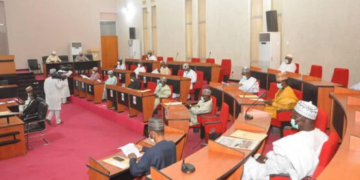The Kano State commissioner for health, Dr Labaran Yusuf, said 4,274 HIV/AIDS-positive patients had been identified in the state within the last year.
Speaking at a press conference to commemorate the 2024 World AIDS Day on Monday, the commissioner said the results were obtained from conducting free HIV testing for 326,831 people in 592 primary healthcare centres, 43 public secondary facilities, and some selected private facilities across the state.
According to him, all the identified patients have been initiated on Antiretroviral Treatment(ART), raising the current number of patients receiving treatment in the state to 32,684.
The commissioner explained that to reduce the spread of the disease, the state has enacted the pre-marital screening law, which makes it compulsory for couples to screen for HIV, Sickle Cell and Genotype, among others, before marriage, adding that three per cent of its total health budget for the year was allocated to the state AIDS agency for HIV Initiatives.
While reiterating the state’s commitment to ensuring access to quality healthcare services, including HIV prevention, treatment, and care without discrimination, Dr Yusuf hinted that the ministry would continue to strengthen supply systems, improve access to HIV testing and treatment, promote awareness and as healthy end mother-to-child transmission.
“In line with this year`s World AIDS Day objectives one and four, we have enrolled over 600 Orphan and Vulnerable Children (OVC) and 2200 People Living with HIV (PLHIV) under our state contributory healthcare scheme to ensure they have access to healthcare services without out-of-pocket expenses, these were covered by the Kano State Health Trust Fund through the Kano State Contributory Healthcare Management Agency and supported by our partner LHSS, another set of 2500 are being processed for enrollment.
“As we commemorate World AIDS Day 2024, we renew our commitment to ‘Take the Rights Path: My Health, My Right!’ and call on everyone to join us in this fight. We must continue to advocate for those affected, fight against stigma and discrimination, and ensure universal access to prevention, treatment, care, and support,” the commissioner added.





